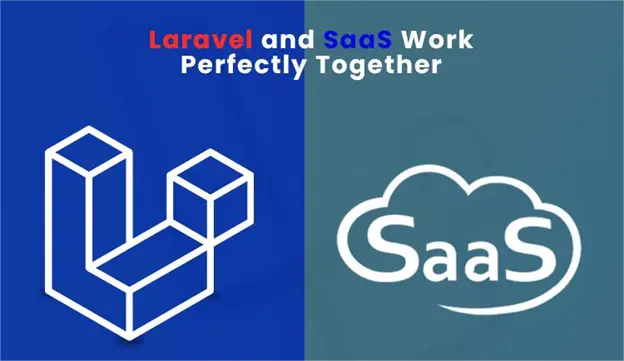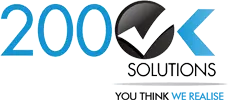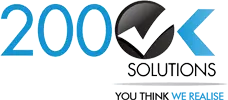
Are you considering building SaaS applications like Invoice Ninja, Zoom, or Slack, but unsure which framework to choose? Developing SaaS applications is a complex endeavor, so selecting the right framework is essential to ensure a smooth development process and robust functionality. While there are several frameworks out there, Laravel stands out for SaaS application development due to its robust features and developer-friendly environment.
Laravel is a renowned PHP-based framework that offers a multitude of features like validation, routing, and file storage. Alongside these, it provides built-in functionalities such as MVC (Model-View-Controller) architecture and Artisan CLI, making Laravel an ideal choice to simplify and accelerate SaaS development. Let’s dive into the reasons why Laravel is increasingly becoming the first choice for SaaS applications before you hire Laravel developers to kickstart your project.
What is Laravel?
Laravel is an open-source backend framework built with PHP that makes online application development easier and faster. It contains features and components built right in that make it easier for web developers to create websites with PHP. Because of these attributes, Laravel Web Application Development is a great option for entrepreneurs everywhere.
The model-view-controller methodology, which is widely used in web application development, is adhered to by Laravel, guaranteeing quick development times, easy maintenance, and reliable scalability. Because of this, Laravel is a great choice for unique web projects, giving users trust in its efficacy.
What is SaaS?
SaaS, or software as a service, is a type of cloud computing where the service provider grants consumers access rights while maintaining full responsibility for resource management. It’s a practical method of distributing apps over the internet that spares users from having to install and maintain the program. All you have to do to avoid having to deal with complicated software and hardware upkeep is to access and utilize apps through the internet.
Although SaaS application development services are sometimes referred to as hosted or on-demand software solutions, you may already be aware that they are Web-based software. With software as a service, you may use software faster and at a lower cost hire dedicated Laravel developers without having to worry about a large upfront investment or time commitment.
Why Develop SaaS Applications Using Laravel?
Here are the top reasons why Laravel is ideal for building robust, scalable, and secure SaaS applications:
- Easy Personalization
Laravel’s modular MVC architecture allows for seamless customization, enabling developers to build and modify features without complex code. For SaaS applications, which often require unique, client-specific functionalities, this adaptability is invaluable. - Artisan CLI (Command-Line Interface)
Laravel’s Artisan CLI streamlines routine tasks such as database migrations, seeding, and task scheduling. This tool simplifies and automates repetitive tasks, making it easier to maintain productivity throughout the SaaS application lifecycle. - Redis for Caching
Laravel’s built-in support for Redis allows applications to cache frequently accessed data, minimizing the load on the primary database and enhancing performance. For SaaS applications that handle large volumes of data, caching is critical to ensure fast, responsive user experiences. - Seamless Third-Party Integrations
With built-in support for integrating with third-party services (e.g., payment gateways, email services, cloud storage), Laravel enables developers to add essential features effortlessly. SaaS applications often need to connect with various APIs, and Laravel’s robust libraries make this integration process smooth and efficient. - Flexible Application Framework
Laravel’s flexible framework supports a wide range of architectures, allowing developers to adapt the application as business needs change. This adaptability is particularly useful for SaaS applications that need to evolve and scale as user demands grow. - Built-In Authentication and Authorization
Laravel comes with pre-built authentication and authorization functionalities, offering robust security for managing user access. The framework supports advanced features such as multi-factor authentication, password resets, and role-based access control, which are crucial for SaaS applications. - Extensive Libraries
Laravel’s libraries cover a variety of functionalities, from encryption to file uploads, making it possible to create feature-rich SaaS applications without relying heavily on third-party packages. - Blade Templating Engine
Laravel’s Blade templating engine allows developers to build dynamic, interactive front-ends. Blade’s lightweight templates help deliver a smooth user experience without compromising performance, which is essential for SaaS applications where UI plays a crucial role. - Eloquent ORM (Object-Relational Mapping)
Laravel’s Eloquent ORM simplifies database interactions, enabling developers to work with database records as if they were working with PHP objects. This feature makes handling complex relationships between data models intuitive, enhancing the scalability and maintainability of SaaS applications. - Database Migration and Version Control
Database migrations are essential for managing data across different environments without data loss. Laravel’s migration system provides version control, making it easier to collaborate, update, and roll back changes—a critical feature for SaaS applications that require high availability. - Optimized Performance
Laravel offers several performance optimization tools, including route caching, view caching, and precompiled assets. This ensures that SaaS applications built with Laravel are fast and efficient, providing a seamless experience for users. - Enhanced Security
Laravel’s built-in security features, such as SQL injection prevention, CSRF (Cross-Site Request Forgery) protection, and XSS (Cross-Site Scripting) protection, help safeguard SaaS applications against common threats. This is crucial for SaaS applications, where user data security is paramount.
What Features and Functionalities Laravel Offers for SaaS?
Building a dynamic and scalable SaaS application requires the right tools. Laravel is a PHP framework packed with functionalities designed to empower your SaaS vision. Let’s explore the key features that make Laravel a best choice for SaaS:
- MVC Architecture
- Authentication and Authorization
- Subscription Management
- Third-party Integration
- API Support
- Built-in Mail Services
- Event Broadcasting and Queuing
Wrapping It Up
Laravel provides a comprehensive, flexible, and secure framework that makes SaaS application development faster, more efficient, and highly customizable. Its powerful features, extensive libraries, and developer-friendly environment make it an ideal choice for building and scaling SaaS applications.
If you’re looking to develop a SaaS application with robust security, high performance, and seamless third-party integrations, Laravel is the way to go. With Laravel, you can build applications that not only meet current needs but are also future-proof and scalable.
Frequently Asked Questions
1. Why is Laravel considered a good framework for SaaS applications?
Laravel offers a flexible architecture, robust security, and extensive built-in libraries that make it ideal for the demands of SaaS applications. It simplifies complex tasks, enhancing productivity and scalability.
2. Is Laravel suitable for startups building SaaS products?
Absolutely! Laravel’s open-source nature minimizes initial costs. Also, its vast community offers abundant resources and support. Its rapid development capabilities help startups launch and adapt to market demands.
3. What are the best practices for deploying Laravel-based SaaS applications?
Use well-established deployment platforms like Laravel Forge or AWS Beanstalk for streamlined deployment. Consider incorporating Laravel and CI/CD. It will automate deployments and faster updates. Focus on security by hardening servers and following industry-standard security best practices.
4. How does Laravel’s Artisan CLI benefit SaaS development?
Artisan CLI automates repetitive tasks, including database migrations and job scheduling, saving time and improving efficiency during the SaaS development lifecycle.
5. Can Laravel scale with a growing SaaS application?
Yes, Laravel’s modular structure and support for caching, load balancing, and database optimization make it suitable for scaling as your SaaS application grows.

